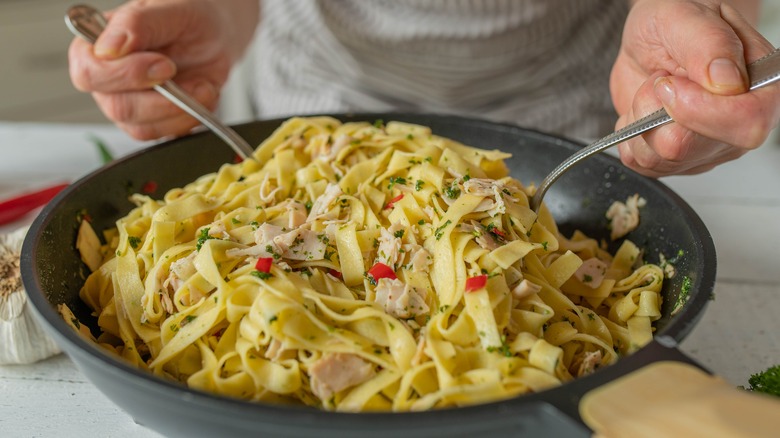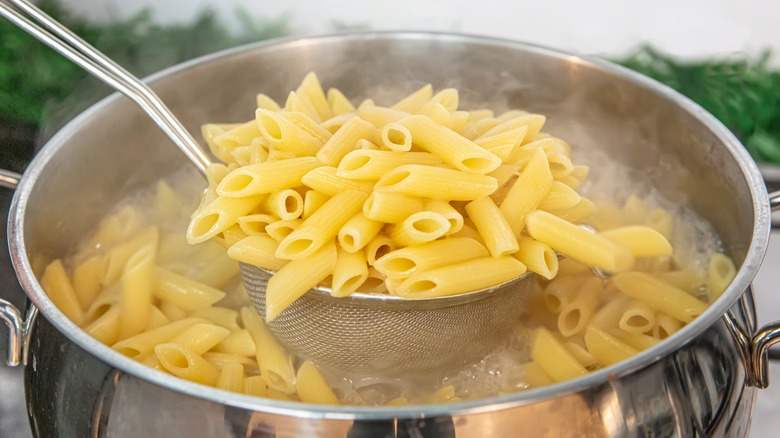The Myth You Should Stop Believing Every Time You Cook Pasta
In the world of pasta, recipe after recipe starts with the same instruction: Bring a large pot of water to a boil. Some pasta brands recommend a heaping 4 to 6 quarts of water for one box of pasta, noting that it keeps the water boiling at a more consistent temperature and prevents clumping.
But is it necessary to use so much water? Does it have to be boiled? Some food scientists have found that simmering pasta in smaller quantities of water can yield great results. For instance, J. Kenji López-Alt of Serious Eats tried simmering medium-sized gemelli pasta in a small pot of water — not without some skepticism. But the method, he discovered, worked. López-Alt notes that in the initial cooking stages, it's crucial to give your pasta a couple stirs to prevent sticking. From there, the method can lead to a pleasantly al dente pasta, rather than a sticky mass of congealed carbs.
Starchier pasta water is another plus
López-Alt is not alone in his expeditions on the pasta-cooking frontier. Food scientists ranging from Harold McGee to Alton Brown have tinkered with similar methods. Brown even found that starting the pasta in cold water won't compromise its texture once it's cooked and drained.
And despite potential outcry from many a Sicilian grandmother, cooking your rigatoni or ditalini in a smaller measurement of water is not only a valid method, it can actually improve your pasta sauce. Why? As López-Alt notes, using a more modest quantity of water will yield starchier pasta water, which is a huge plus. Starchy, foggy pasta water has the potential to elevate any pasta dish from average to restaurant-worthy. It will smooth out your pasta sauce while adding creaminess, creating a velvety, glossy texture that will cling to your pasta. There's a reason why Italian cook Nadia Munno (a.k.a. The Pasta Queen) so often refers to the starchy goodness as "tears of the gods."
And there are other benefits: Think of all those quarts of pasta water that will inevitably cascade into your kitchen drain once you've strained your pasta. Sure, maybe you've reserved a cup or two of pasta water for the reasons above, but the rest is generally wasted. So cutting back can help slightly diminish water waste. Tastier pasta and more sustainable water consumption? Not a bad deal.

